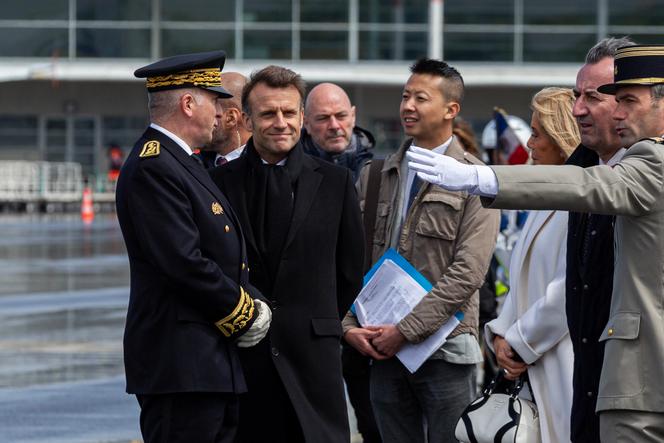


Nothing has yet been finalized, but it could be a matter of weeks, or even days, before French and European instructors are sent to Ukraine. Le Monde has learned that the French authorities are looking to set up a coalition of willing countries to train Ukrainian forces besieged by the Russian army.
According to several sources with knowledge of the matter, consultations on this subject are set to accelerate in the coming days, with a view to a possible announcement when Ukrainian President Volodymyr Zelensky visits France to mark the 80th anniversary of the D-Day Normandy landings on June 6 and 7. French President Emmanuel Macron could then unveil the outlines of such an initiative, three and a half months after he originally said he would not rule out sending Western military reinforcements to Ukraine, on February 26.
The issue was discussed on Tuesday, May 28, by the French president and German Chancellor Olaf Scholz, on the sidelines of the French-German Council of Ministers meeting at Meseberg Castle, north of Berlin. Speculation had been rife the previous day following a premature announcement by the Ukrainian General Staff of an agreement on the subject, much to the dismay of the French authorities. Ukraine was then forced to tone down its comments.
"I'm not in the habit of commenting on rumors or decisions that might happen," Macron said at a press conference with Scholz on Tuesday, referring to "uncoordinated and unfortunate communications." But he did not deny the prospect of such a deployment.
The idea would be to first send a few dozen specialists to identify training needs. This would be followed by a mission of several hundred troops. There is talk of training deminers, and even, as France envisages, training soldiers for a new motorized brigade.
While Germany continues to be very cautious about sending military personnel to Ukraine, including instructors, several countries are likely to join the coalition. "We could send instructors back to Ukraine (...) who were already there [before the Russian invasion]. Lithuania is ready to join a coalition led, for example, by France, which would train soldiers in Ukraine," said Lithuanian Foreign Minister Gabrielius Landsbergis in mid-May. Eager to hear more details from the French side, the British might also be interested in such an initiative, according to Baltic sources.
In an interview published on May 20 by the Financial Times, Latvian Prime Minister Kaja Kallas, also in favor of the project, said Kyiv's allies need not fear being drawn into a war with Moscow in the event of European trainers being targeted by a Russian attack. "I can't possibly imagine that if somebody is hurt there, then those who have sent their people will say 'it's article five. Let's bomb Russia.' It is not how it works. It’s not automatic," explained the Baltic leader.
You have 34.66% of this article left to read. The rest is for subscribers only.
